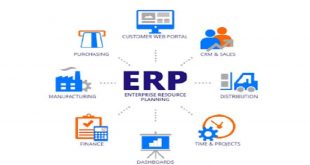Many companies handle procurement and inventory management through ERP. What is ERP and why is it necessary for your organization? How can it be used in procurement and inventory management? Here is what you need to know.
What is ERP?
Enterprise Resource Management or ERP is a software that automates business activities, such as accounting, production, procurement, inventory management, and human resources (HR). The software collects data from those fields and provides insights. This enables leaders to assess numerous scenarios, improve processes, save costs, and boost productivity.
When personalized to a company’s specific needs, ERP software can effectively facilitate collaboration between people and processes within an organization. Since the emergence of the ERP in the 1990s, many of the world’s most well-known and successful companies have relied on it. This system is a vital tool for businesses of all sizes and industries.
The Use of ERP in Procurement
Keeping track of purchase requests, inventory levels, and negotiating with vendors can stress out even the most organized procurement manager. ERP can also help expedite the procurement process. This software is especially handy when it comes to navigating the complexities of low-mix, high-variable manufacturing.
Handling procurement and inventory management through ERP can ensure your organization always has the proper amount of stock on hand. By streamlining the procurement process, an ERP can give you more time to focus on other aspects of your organization. This will create a more effective operation, leading to higher profits.
The Use of ERP in Inventory Management
Other than procurement, using ERP for inventory management can dramatically increase productivity. Most organizations do business operations with different software and systems. It can be difficult managing information using dissimilar systems, not to mention time- and cost-consuming. ERP makes the process easier.
By utilizing ERP to manage inventory, you have a single platform to track every product, cost, sale, employee, and customer interaction. This is more effective and efficient than using, and paying for, separate software for each of your company activities. Using a centralized system to manage operations reduces double-handling and enables the automation of daily duties.
Conclusion
As you can see, using an ERP software equates to higher output and greater accuracy in less time. A tailor-made ERP for your organization lowers the total burden of the company and minimizes expenses. Handling procurement and inventory management through ERP may be the overhaul your organization needs to improve productivity. (pc)
 Imaxshift.com : Insurance, Finance, Technology & Gadget Blog
Imaxshift.com : Insurance, Finance, Technology & Gadget Blog



